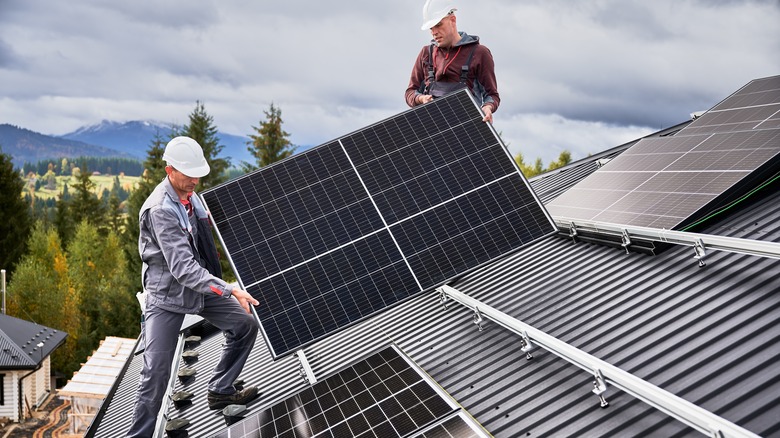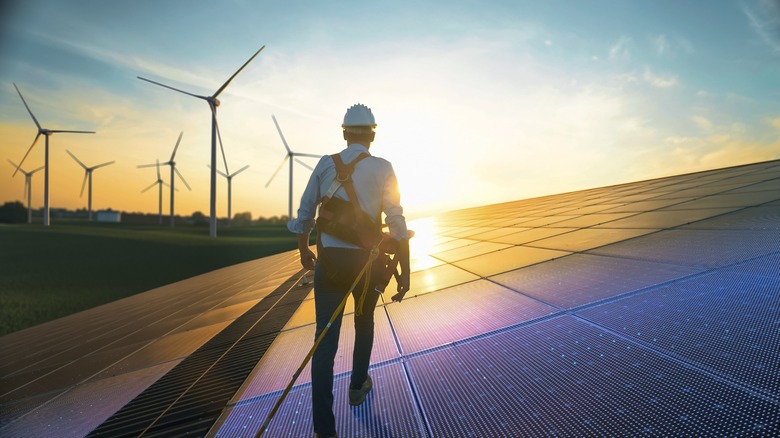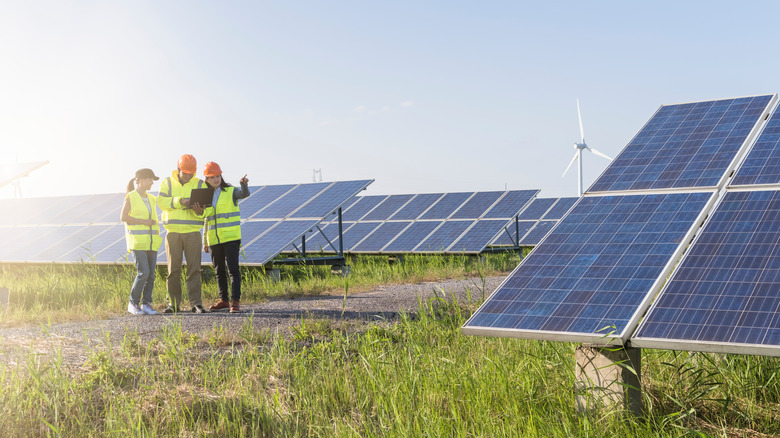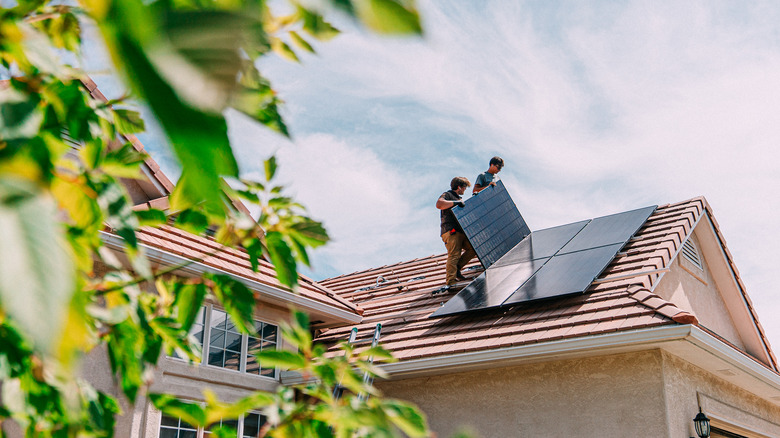How Exactly Do Solar Panels Help The Environment?
Whether people like to believe it or not, climate change is causing the overall warming of the planet, rising sea levels, and destruction of the ozone layer. Energy is a major component to why climate change has become such a crisis, as so many systems rely on fuel that cause massive amounts of greenhouse gas emissions. However, not all energy has to be detrimental to the environment, and this is where we have seen technology like solar panels come into play.
People have been trying to find alternative ways to keep our modern world afloat that are far less detrimental to the environment than the nonrenewable resources often used. For example, we have seen a substantial rise in people switch to electric vehicles that don't utilize harmful fossil fuels to run. And, of course, solar panels can help to reduce greenhouse emissions and save energy. While being able to get this kind of power into people's homes and workplaces requires a great deal of overhaul and cooperation that is fairly expensive, the positive effects it would have on the environment are undeniable.
How do solar panels work?
People have some misconceptions about the practicality of solar panels. For instance, when the sun isn't out at night, how would they work? What if it's a particularly cloudy day? Well, solar panels aren't exactly concerned with light, per se, but radiation, which is what the sun is truly emitting. The two are certainly linked, as more light means more radiation.
Solar panels aren't turned on and off like a light switch when the sun is or isn't hitting them. They are designed to store energy to be applied later. Some solar panels do this through absorbing radiation into photovoltaic cells built into the panel, which create an electrical charge. Others concentrate solar-thermal power by building in mirrors on the panels to reflect sunlight onto receivers. These receivers then convert this into heat that can then be used for electricity. The photovoltaic panels are the ones you generally find for personal use, whereas the solar-thermal ones you will find at power plants that need to constantly store vast amounts of energy.
Using solar panels can improve air quality
Switching to solar panels means a vast reduction in greenhouse gas emissions and an improvement in air quality. In its report on climate change in 2022, the Intergovernmental Panel on Climate Change rated solar energy to be the greatest mitigating factor in reducing net carbon emissions by the year 2030. Fossil fuel emissions account for over 75% of greenhouse gas emissions, and eliminating those in favor of solar panels would drastically cut out the biggest perpetrator of climate change.
It's important to also remember how reducing pollutants and improving air quality can be a major benefit for simple daily life. Climate change has caused an increase in respiratory problems for many people over the years. There has been a rise in people with asthma and lung disease as a direct result of the influx of pollutants in the air that cause climate change. Because of the stronger, more erratic seasons that occur, people may experience worse allergies. This is especially troublesome for the elderly, children, and those who are immunocompromised. So, with the installation of more solar panels, it's possible to benefit the health of the world and all those who inhabit it.
Solar panels are a source of renewable energy
Emissions released by energy sources like gasoline or natural gas are harmful to the air and the environment, and making them even more awful is the fact that they are single-use energy sources. For instance, when you fill up your car's tank with gasoline, you can't reuse that gasoline once it's been burned through. That means that oil companies need to constantly be drilling for more oil, further pilfering the Earth.
Solar panels, on the other hand, are a renewable source of energy. You aren't going to lay out an entire field of solar panels, use them once, and then dispose of them recklessly only to build more. Instead, once electricity has been extracted from solar panels, you can just continue to collect more. Solar panels are built to last 25 to 30 years if properly maintained and cleaned. As long as the sun is shining on those panels, they are good to go for decades.



